★★★
“My Sweet Sixteen Teenage Armageddon.”
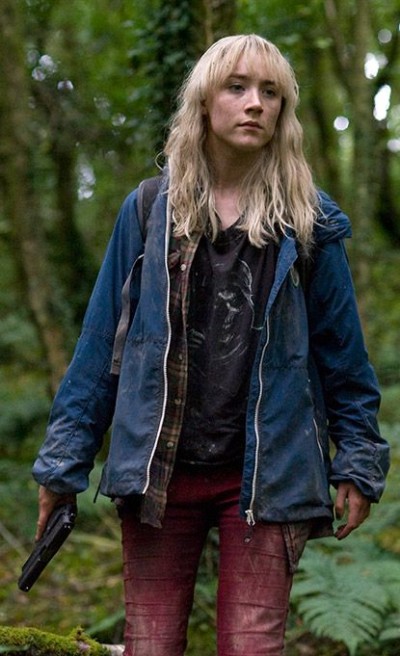 The extraordinarily surly teenager Elizabeth (Ronan), who loudly insists on being known by everyone as “Daisy,” is sent from American to spend the summer in rural Britain with relatives. Unsurprisingly, she hates it – at least, until she meets Eddie (MacKay), a local brooding hunk for whom she falls. Fate throws a spanner in the works, however, as escalating tensions eventually lead to a nuclear attack on London and the outbreak of World War 3, against an un-named foe. The kids try to fend for themselves, but the boys and girls are forcibly separated, with Daisy having to take care of young cousin Piper (Bird). Turning her willpower to topic other than, as she says, not eating chocolate, she and Piper escape the camp where they are being used as forced labour, and begin the hazardous trek back to where Daisy is sure Eddie is waiting.
The extraordinarily surly teenager Elizabeth (Ronan), who loudly insists on being known by everyone as “Daisy,” is sent from American to spend the summer in rural Britain with relatives. Unsurprisingly, she hates it – at least, until she meets Eddie (MacKay), a local brooding hunk for whom she falls. Fate throws a spanner in the works, however, as escalating tensions eventually lead to a nuclear attack on London and the outbreak of World War 3, against an un-named foe. The kids try to fend for themselves, but the boys and girls are forcibly separated, with Daisy having to take care of young cousin Piper (Bird). Turning her willpower to topic other than, as she says, not eating chocolate, she and Piper escape the camp where they are being used as forced labour, and begin the hazardous trek back to where Daisy is sure Eddie is waiting.
The best thing here by far is the heroine’s character arc. In the first two minutes, it’s established what a totally unlikeable bitch Daisy is: she has clearly made up her mind to hate the trip and everything about it, and the audience hates her for the obvious narcissism. But by the end, she has been forged in the fire of adversity and completely transformed in just about all aspects of personality, to someone who has learned that it’s much better to live your life for others than for yourself. As Chris noted, it’d be funny if the whole thing had just been a set-up by her (unseen) father, just to teach his whiny daughter a good lesson. That isn’t the case: what it is, is another powerhouse performance by Ronan, backed by solid work from the rest of the young cast, particularly Piper, who could gives the likes of Abigail Breslin and Dakota Fanning a run for their money in the Adorability Stakes.
Probably the main weakness is the abruptness of the relationship between Daisy and Eddie. It probably needed more time taken to develop it, because as things stand, it seems Daisy falls head over heels for him at about the second glance. On the other hand, I’m quite glad it didn’t because it’s the kind of standard, young adult cliché which we’ve seen far too often before [this was based on a book from the genre by Meg Rosoff]. Much more satisfying is the second half, when Daisy is forced entirely into relying on her own skills, and becomes a much more interesting character as a result. Director Macdonald got his start in documentary film-making and brings much of the same urgency to proceedings here, not soft-pedalling the brutality and violence of armed conflict. Like a more contemporary version of The Hunger Games, it shows how inner strength can be found in the most surprising of places, and Ronan cements her position as one of the leading young action heroines in Hollywood.
Dir: Kevin Macdonald
Star: Saoirse Ronan, George MacKay, Harley Bird, Tom Holland





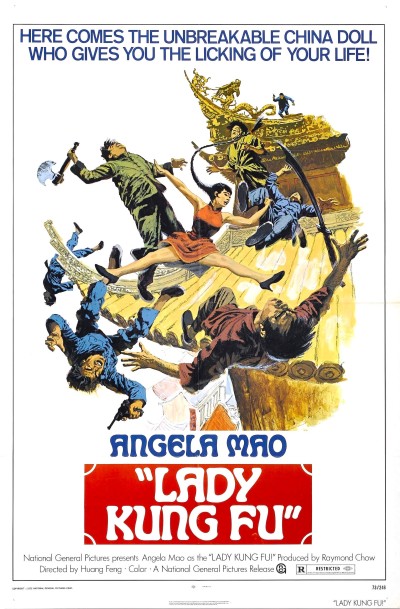
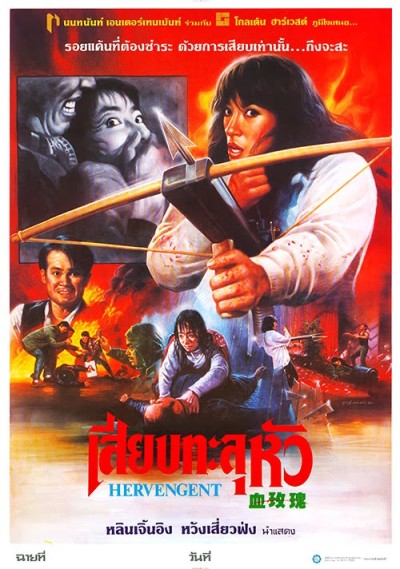 Director Lam is responsible for insane cult classic, The Story of Ricky, and if this is more restrained, it’s only by comparison. Casino manager Chieh Ying (Wong) is gang-raped by five sleazebags – and, wouldn’t you know it, they’re the same guys who killed her father. Worse is to come, as a trip to the doctor reveals a rather nasty case of venereal disease, and after some melancholic wandering around which occupies the rest of the first half (and, to be frank, is rather boring), our heroine gets tore into the villains, extracting the titular payback. Though you know the old saying, “She who seeks vengeance, must first dig two graves”? That’s a severe understatement here, because this roaring rampage will end needing an entire cemetery, costing Chieh Ying almost everybody she cares about, from her uncle, a wheelchair bound kung-fu wizard (Lam, best known for the Mr. Vampire series), to her wannabe boyfriend (Wong).
Director Lam is responsible for insane cult classic, The Story of Ricky, and if this is more restrained, it’s only by comparison. Casino manager Chieh Ying (Wong) is gang-raped by five sleazebags – and, wouldn’t you know it, they’re the same guys who killed her father. Worse is to come, as a trip to the doctor reveals a rather nasty case of venereal disease, and after some melancholic wandering around which occupies the rest of the first half (and, to be frank, is rather boring), our heroine gets tore into the villains, extracting the titular payback. Though you know the old saying, “She who seeks vengeance, must first dig two graves”? That’s a severe understatement here, because this roaring rampage will end needing an entire cemetery, costing Chieh Ying almost everybody she cares about, from her uncle, a wheelchair bound kung-fu wizard (Lam, best known for the Mr. Vampire series), to her wannabe boyfriend (Wong).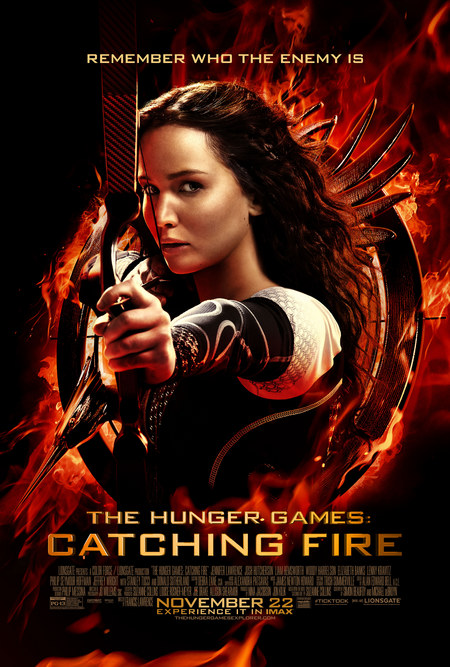
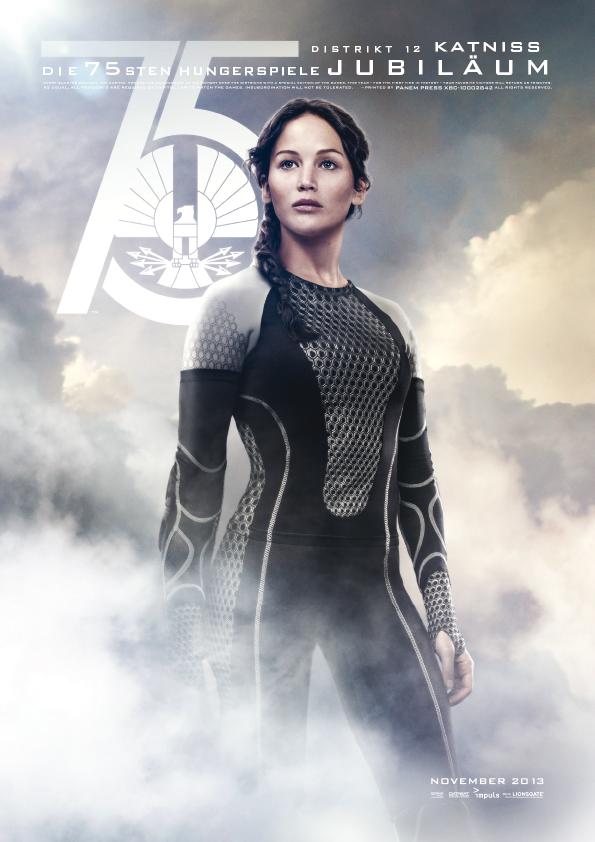












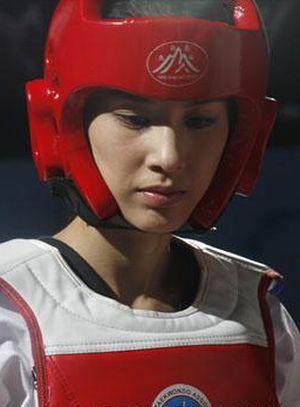
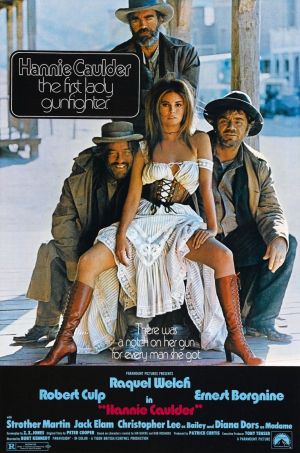 If genre entries produced in Italy are “spaghetti Westerns”, what does that make those produced in Britain? “Fish and chip Westerns?” “Roast beef Westerns?” Shot in Spain, but made by Tigon Film, and including such quintessential Brits as Christopher Lee and Diana Dors in supporting roles, this is nicely-photographed and hits all the right notes. But as the titular character, who seeks revenge after her husband is gunned down, and she herself raped, by the Clemens brothers, Welch perhaps has too much cinematic baggage. While responsible for one of the all-time absolute
If genre entries produced in Italy are “spaghetti Westerns”, what does that make those produced in Britain? “Fish and chip Westerns?” “Roast beef Westerns?” Shot in Spain, but made by Tigon Film, and including such quintessential Brits as Christopher Lee and Diana Dors in supporting roles, this is nicely-photographed and hits all the right notes. But as the titular character, who seeks revenge after her husband is gunned down, and she herself raped, by the Clemens brothers, Welch perhaps has too much cinematic baggage. While responsible for one of the all-time absolute  Rika (Kudo) and her schoolgirl pal ditch education for a day and head off to a remote village to check up on her grandfather, who hasn’t been heard from for a while. But as soon as they arrive, the pair come under attack by zombies, initially spawned as the result of a euthanasia drug being tried out by the Japanese government to address the whole “inverse pyramid” thing. They do reach Grandpa’s house, but find him in the stages of advanced Alzheimer’s – at least, until Rika is bitten. Gramps removes the limb, and replaces it with one conveniently lying around, which happens to belong to a master zombie hunter. Who cares if it’s the wrong colour and incredibly muscular? With America preparing a Return of the Living Dead style cleansing operation on the area, Rika and her allies have to locate the King Zombie and kill him, before being reduced to their constituent atoms.
Rika (Kudo) and her schoolgirl pal ditch education for a day and head off to a remote village to check up on her grandfather, who hasn’t been heard from for a while. But as soon as they arrive, the pair come under attack by zombies, initially spawned as the result of a euthanasia drug being tried out by the Japanese government to address the whole “inverse pyramid” thing. They do reach Grandpa’s house, but find him in the stages of advanced Alzheimer’s – at least, until Rika is bitten. Gramps removes the limb, and replaces it with one conveniently lying around, which happens to belong to a master zombie hunter. Who cares if it’s the wrong colour and incredibly muscular? With America preparing a Return of the Living Dead style cleansing operation on the area, Rika and her allies have to locate the King Zombie and kill him, before being reduced to their constituent atoms.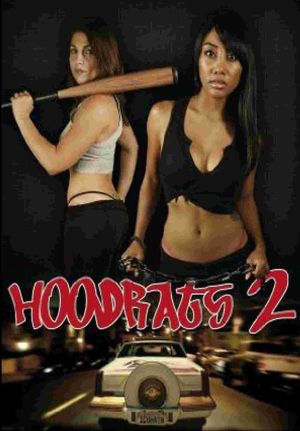 When Chino (Rodil) beats up his woman, Lucia (Sparagna) decides it has happened for the last time, and accompanied by her two friends, Celia (Mortel) and Miriam (Cho), she gives him a dose of his own medicine, with a baseball bat. This turns out to be a clear case of thinking without acting, because it turns out he’s a big kahuna in one of the local gangs, and is now out for revenge on the trio. After a drive-by cripples their vehicle (a ghettomobile with the amusing personalized plate, ‘ICUHATN’), they are stuck deep in enemy territory, with a lot of unfriendly people looking for them. And even if they make it out alive, what then?
When Chino (Rodil) beats up his woman, Lucia (Sparagna) decides it has happened for the last time, and accompanied by her two friends, Celia (Mortel) and Miriam (Cho), she gives him a dose of his own medicine, with a baseball bat. This turns out to be a clear case of thinking without acting, because it turns out he’s a big kahuna in one of the local gangs, and is now out for revenge on the trio. After a drive-by cripples their vehicle (a ghettomobile with the amusing personalized plate, ‘ICUHATN’), they are stuck deep in enemy territory, with a lot of unfriendly people looking for them. And even if they make it out alive, what then?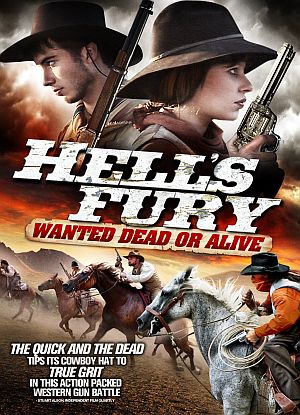 Eryn Cates (Hague) returns home to Texas from finishing school in New York, to find her family farm teetering on the edge of foreclosure [maybe if they hadn’t spent all that money to send her to finishing school in New York…]. In a misguided attempt to help things, her brother tries to rob a stagecoach carrying payroll, but is injured. The attempt fails, but local mogul Mortimer (Harris), who holds the loan on the Cates farm, sees a chance and pockets the loot. Two Texas Rangers, including the young and handsome Flint (Hagenbuch) show up to investigate the robbery, but it’s up to Eryn to save the family property, take on the mantle of the bandit, fend off the unwanted advances of Mortimer and engage in pseudo-romantic banter of the least interesting or convincing sort with Flint.
Eryn Cates (Hague) returns home to Texas from finishing school in New York, to find her family farm teetering on the edge of foreclosure [maybe if they hadn’t spent all that money to send her to finishing school in New York…]. In a misguided attempt to help things, her brother tries to rob a stagecoach carrying payroll, but is injured. The attempt fails, but local mogul Mortimer (Harris), who holds the loan on the Cates farm, sees a chance and pockets the loot. Two Texas Rangers, including the young and handsome Flint (Hagenbuch) show up to investigate the robbery, but it’s up to Eryn to save the family property, take on the mantle of the bandit, fend off the unwanted advances of Mortimer and engage in pseudo-romantic banter of the least interesting or convincing sort with Flint.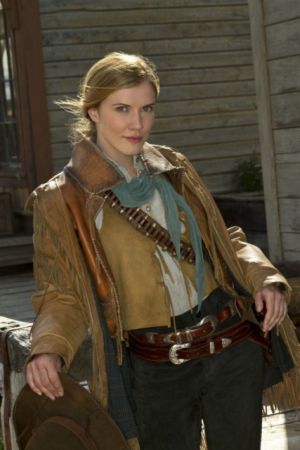 In 1866, the young child Hannah Beaumont (Canning, best known for her role in The Vampire Diaries) watches as the rest of her family is slaughtered by outlaw Frank McMurphy (Pyper-Ferguson). Twelve years later, Hannah is now getting her long-awaited revenge. Having been trained to shoot, ride and collect the bounty on wanted men by Isom Dart (Danny Glover in a small role), she is now reeling in the members of McMurphy’s gang, one by one. When McMurphy hears about this, he gathers up his entire posse and rides to Hannah’s base in Dodge City to finish off what he started, a decade before. Can Hannah – with the aid of the town’s deputy marshal, Wyatt Earp (Holt) and her other friends, come out on top?
In 1866, the young child Hannah Beaumont (Canning, best known for her role in The Vampire Diaries) watches as the rest of her family is slaughtered by outlaw Frank McMurphy (Pyper-Ferguson). Twelve years later, Hannah is now getting her long-awaited revenge. Having been trained to shoot, ride and collect the bounty on wanted men by Isom Dart (Danny Glover in a small role), she is now reeling in the members of McMurphy’s gang, one by one. When McMurphy hears about this, he gathers up his entire posse and rides to Hannah’s base in Dodge City to finish off what he started, a decade before. Can Hannah – with the aid of the town’s deputy marshal, Wyatt Earp (Holt) and her other friends, come out on top?